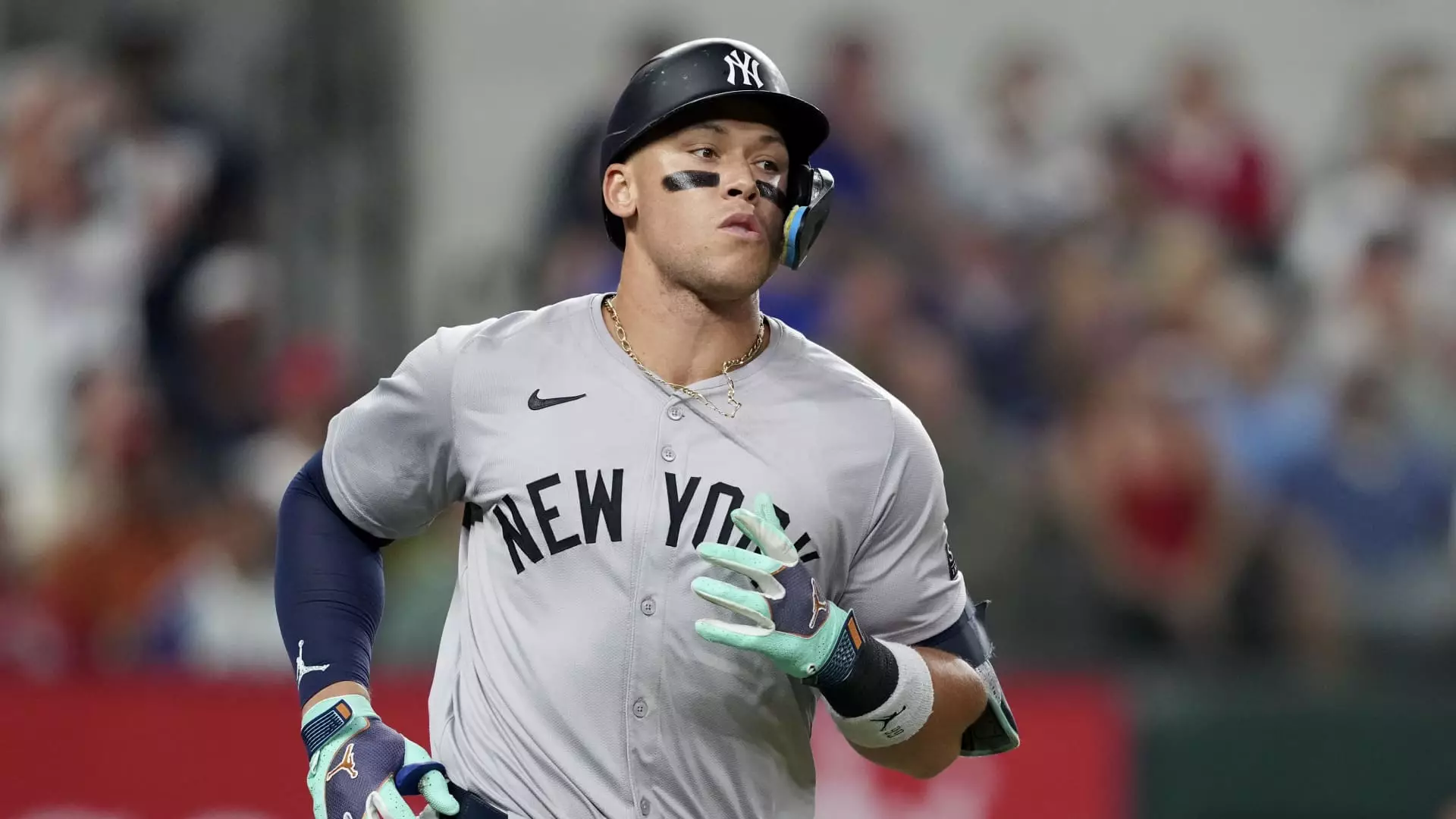The 2024 postseason of Major League Baseball (MLB) is shaping up to be one for the books, rapidly dispelling doubts about the league’s cultural relevance. With eye-popping viewership numbers and compelling matchups, the drama and excitement of the playoffs are breathing new life into a sport that has faced scrutiny in recent years. This article delves into the factors behind the renewed interest in baseball and how its marketing strategies are impacting the postseason landscape.
The excitement surrounding the NLCS (National League Championship Series) opener on Sunday between the New York Mets and the Los Angeles Dodgers illustrates a significant turnaround for baseball viewership. Averaging 8.26 million viewers, this encounter stands as the highest-rated LCS game since 2009, surpassing expectations even while competing against the backdrop of “Sunday Night Football.” The following night saw the ALCS (American League Championship Series) gather 3.9 million viewers, marking a 4% increase compared to the previous season.
This surge in viewership is especially striking given the concurrent prominence of NFL games and the competitive sports landscape as multiple New York teams took center stage in primetime slots. Previous concerns regarding MLB’s waning cultural impact highlight the importance of these numbers. Younger viewers, who are often perceived as having shorter attention spans despite their growing presence in the market, now seem drawn back to the game, perhaps signaling a turning tide.
In the context of the 2024 season’s successes, the growth figures reported by MLB are noteworthy. The postseason’s strong performance follows a robust regular season, which saw attendance, fan engagement, and streaming numbers rise significantly. The league’s strategic introduction of a pitch clock, which has effectively shortened game durations, certainly contributed to a more dynamic viewing experience. Rob Manfred, the MLB Commissioner, highlights these developments as indicators of an increasing enthusiasm among fans across all demographics.
Furthermore, the league’s adaptability in the face of changing viewer preferences—from increasing game freneticism to utilizing social media clips for promotion—shows a commitment to capturing an evolving audience. This strategic approach has the potential to ensure that MLB remains relevant and engaging for younger fans while simultaneously satisfying traditional baseball aficionados.
The implementation of rule changes such as larger bases and restrictions on defensive shifts has been crucial in enhancing game pace and in-game action. These adjustments aim to address the demand for quicker and more engaging baseball that appeals to a wider demographic. As the playoffs unfold, it is clear that these changes may well result in high-octane games leading to higher viewership and overall excitement.
Moreover, the focus on generational talents like Shohei Ohtani and Aaron Judge has likely stoked interest in the playoffs. With narratives surrounding record-breaking performances and potential historic showdowns between storied franchises, the anticipation surrounding the upcoming World Series is palpable. As MLB gains momentum, the envisioned face-off between the Yankees and Dodgers promises not just a clash of titans but a compelling narrative steeped in history.
While marquee matchups often grab headlines, teams like the Mets and Guardians are also fostering compelling storylines that enhance the overall postseason experience. The Mets’ turnaround and the Guardians’ resurgence at the hands of star Jose Ramirez provide additional hooks for fans, illustrating how local success can contribute to national excitement.
In many ways, these localized narratives enrich the overarching storyline of the playoffs, hinting at greater competitiveness and unpredictability—a key ingredient for enticing audiences. Fans are not just invested in teams but in personal stories that spiral into larger plots, fostering a sense of community and connection.
The 2024 MLB postseason is serving as an exhilarating showcase filled with game-time drama, astonishing viewership numbers, and a spirit of resurgence. With contemporary strategies in rule-making, a compelling focus on standout players, and compelling matchups, baseball appears to be steering clear of the downturns that have plagued it recently. The combination of strategic marketing, engaging storylines, and an eye toward future generations indicates that MLB is not only alive but thriving in the competitive landscape of sports entertainment. Only time will tell if this momentum will carry into subsequent seasons, but the foundations laid this year might very well set the stage for a new era in baseball.

